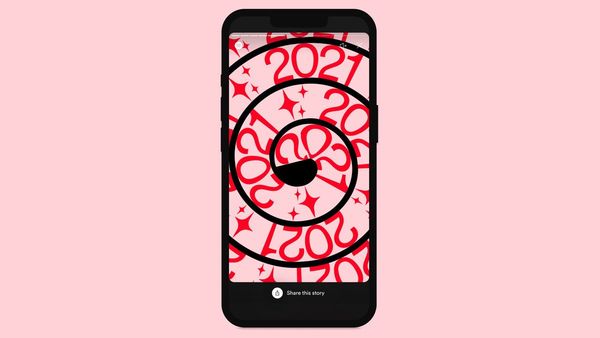Why 2022 Is a Year of Remembering
By Shazia Hafiz Ramji
In the last week of December 2021, I tried to remember what I had done during the year. I couldn’t remember. I had life-changing experiences – started a PhD, completed my first term successfully, made music – but I couldn’t recall these experiences as easily as I can still recall 2019, with all its flights and new friendships. I couldn’t remember 2020 either. I panicked and texted my friend. “I just texted my sister the same thing,” he said, “I can’t remember what I did.” I felt a little less alone, but it got me thinking about why I couldn’t remember the year as clearly as I could remember previous years, even though I had achieved quite a bit. But this is not about having done things in terms of achievement, it’s about memory. Yes, the pandemic has affected our memory.
At the bottom of your brain is the seahorse-shaped hippocampus. It is responsible for spatial navigation and memory, including the formation of new memories and the recall of declarative memory (like facts) and episodic memory (like events). According to the BBC, in the context of Alzheimer’s research, a “lack of [social] contact can affect the brain negatively.” In the context of lockdown, even if we don’t feel distressed at reduced human contact, it can still affect our memory. Socializing requires us to recall and repeat – it’s the storytelling of what we do with our lives. It helps us create and consolidate episodic memory. So, if you’ve been socializing less then it’s not surprising that your memory would be foggier than usual.
And then there is the lack of memory traces or tags. Sitting in front of a screen all day doesn’t help to distinguish one day from another, since there are no spatial cues attached to geographical locations. I remember 2020 more than 2021 because I went out more than I did in 2021. In fact, most of my strongest memories – the ones easiest to recall – involve being in a geographical location other than home, where I live alone. I remember catching the ferry to Victoria, BC, eating kebabs in the lineup with my cousins. I remember smiling at familiar strangers at the library, all of us masked and quiet. I remember going for mental health walks and listening to the ravine. I don’t remember listening to the same wordless songs all year. I only remembered that when it was time for the end-of-year Spotify Wrapped and the algorithm reminded me of my most-listened-to songs. I remember that now because I shared them with a friend and we laughed about it.
There is certainly depression that accompanies the collective grief we’re experiencing. As anyone who has experienced depression knows, it affects your memory. All of this is scary as hell, for obvious reasons. But it is especially scary as a writer. If I’m not living fully and sensually, I know that my writing will suffer too. I know, too, that deliberately remembering my life and deliberately paying attention to sound helped me come through clinical depression and PTSD from being stalked.
I didn’t make any goals for this year because it feels wrong to do anything other than to live and appreciate others during this time. When living doesn’t mean going out with friends, family, and taking trips, it means that it’s time to make the ordinary sacred – to bring renewed attention to the boring stuff of everyday life – acknowledging it to remember life much more deliberately, like Joe Brainerd in his “I Remember” series, a go-to prompt I often share with my students and which I now assign to myself for the rest of 2022.
Your CanLit News
Subscribe to Open Book’s newsletter to get local book events, literary content, writing tips, and more in your inbox
Somebody said that remembering and memory makes life much sweeter. I don’t remember who said it, but I want to remember my life, because it is pretty sweet to be alive.
The views expressed by Open Book columnists are those held by the authors and do not necessarily reflect the views of Open Book.
Shazia Hafiz Ramji’s fiction was shortlisted for the Malahat Review’s 2022 Open Season Awards. Her poetry was shortlisted for the 2021 National Magazine Awards and the 2021 Mitchell Prize for Faith and Poetry. Shazia’s award-winning first book is Port of Being. She lives in Vancouver and Calgary, where she is at work on a novel.




